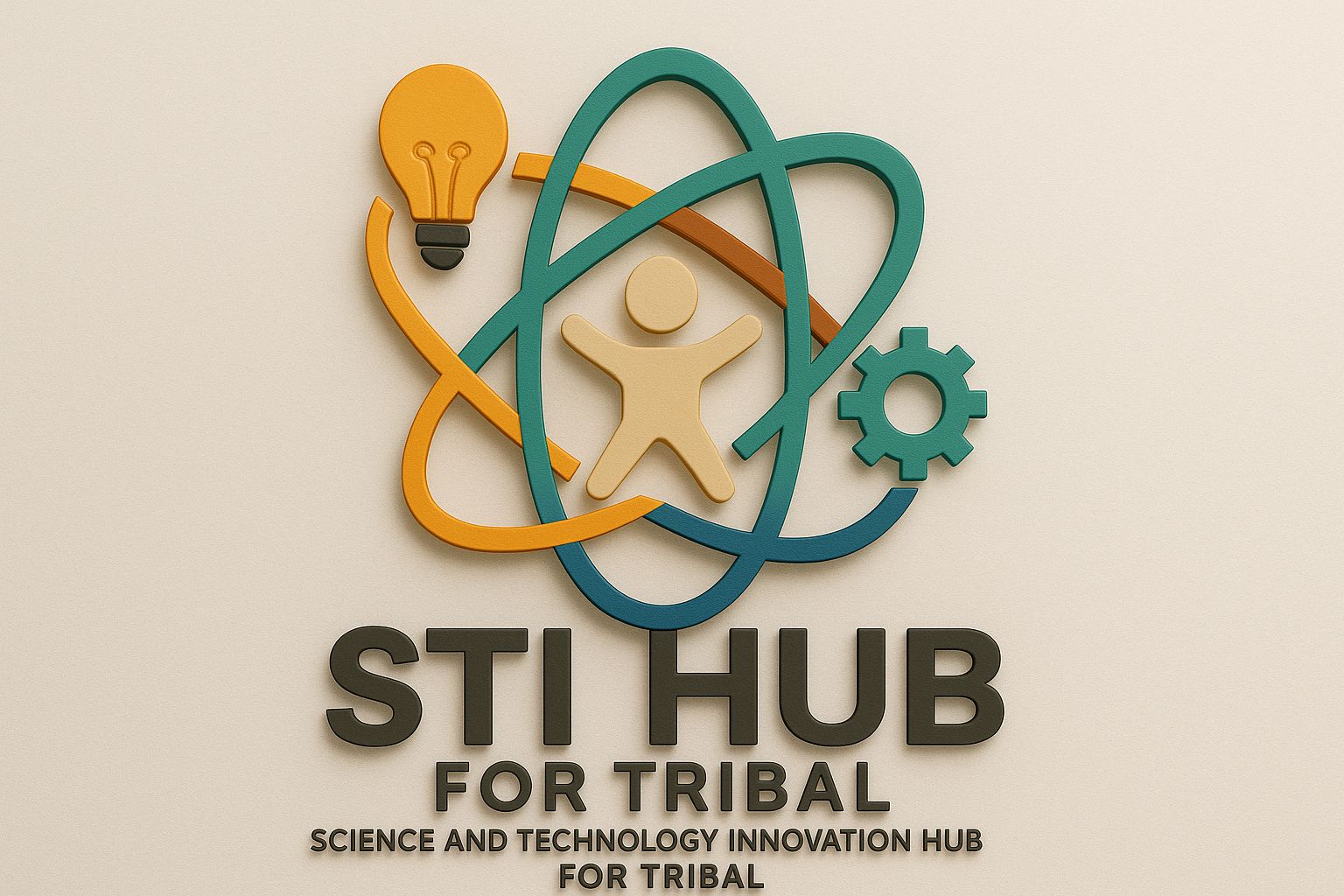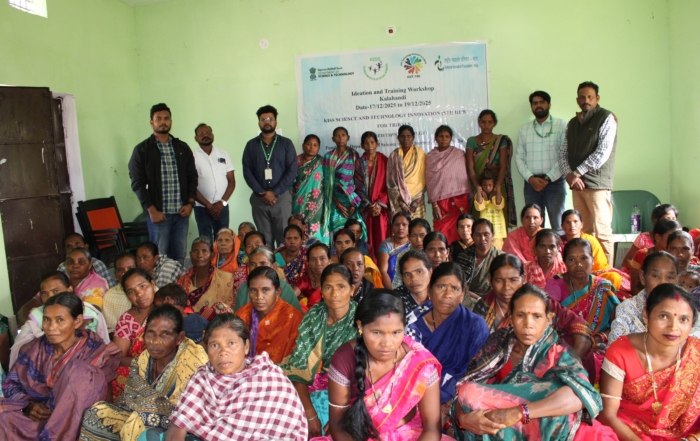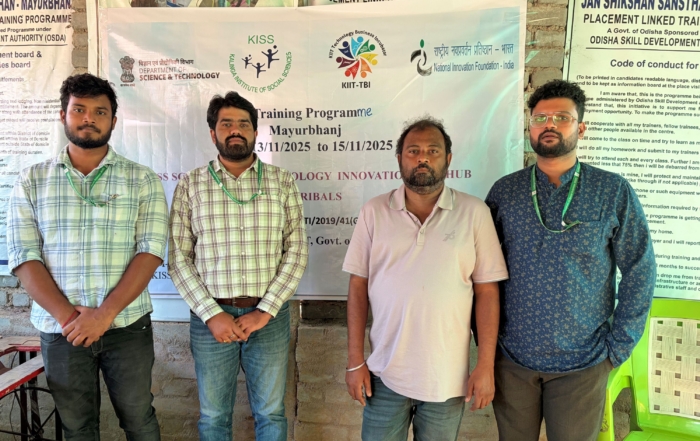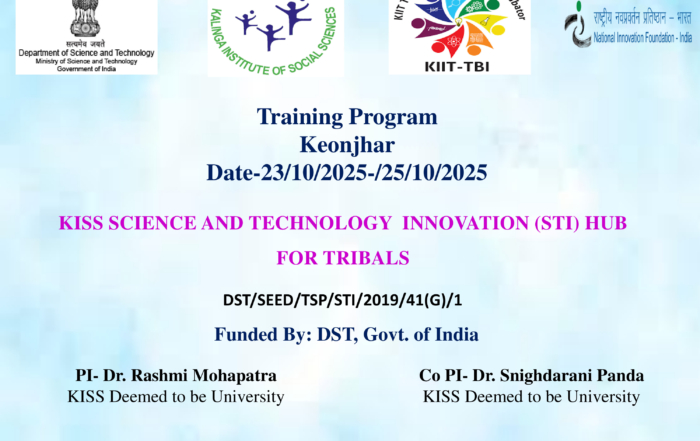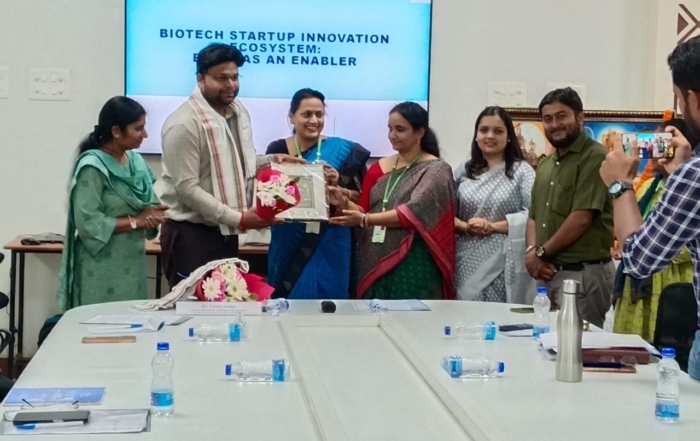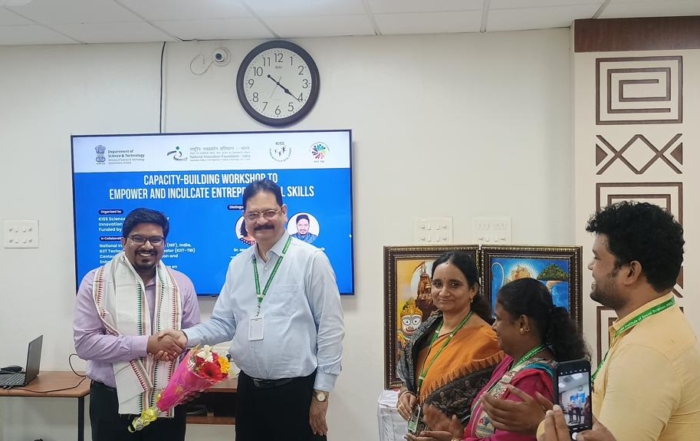About the Project
The Science, Technology & Innovation (STI) Hub for Tribals is an initiative of Kalinga Institute of Social Sciences (KISS), Bhubaneswar, supported by the Department of Science & Technology (DST), Government of India. The project focuses on creating inclusive and sustainable development pathways for marginalized ST/SC communities in Odisha, especially in the districts of Kalahandi, Kandhamal, Keonjhar, and Mayurbhanj.
By integrating modern science with indigenous knowledge, the STI Hub acts as a catalyst for improving livelihoods, education, healthcare, agriculture, and entrepreneurship among tribal populations.
Vision & Mission
Vision: To empower tribal communities with the tools of science, technology, and innovation for self-reliance and socio-economic upliftment.
Mission: To establish local hubs that provide training, infrastructure, and entrepreneurship support to ensure sustainable livelihoods, improved health, and better quality of life.
Core Objectives
- Develop Local Infrastructure – Training centers in tribal regions; solar energy, water, and sanitation facilities.
- Promote Skill Development & Employment – Training in food technology, solar products, digital literacy, telemedicine, and entrepreneurship.
- Enhance Agricultural Productivity – Training in organic farming, crop diversification, high-yield varieties of cassava, millets, and sweet potatoes.
- Address Poverty through Financial Inclusion – Microfinance, credit support, and financial literacy programs.
- Healthcare & Indigenous Knowledge – Telemedicine using indigenous herbs, awareness, and wellness camps.
Key Interventions
- Solar Energy & Clean Technologies: Lighting up remote villages.
- Food Technology Innovations: Value addition to cassava, millets, and sweet potatoes.
- Indigenous Telemedicine: Blending traditional herbal knowledge with modern telemedicine.
- Skill Training & Workshops: Hands-on training and entrepreneurship bootcamps.
- Micro-enterprise Development: Linking communities with government schemes and CSR support.
Future Prospects
- Scale the STI Hub to more tribal districts.
- Establish rural start-ups in food processing, renewable energy, and healthcare.
- Create innovation labs combining traditional knowledge with modern science.
- Expand market linkages for tribal products nationally and globally.
- Integrate sustainability goals like renewable energy and climate-smart practices.
Industry Linkages
- Food & Agro-Industry: Commercializing millet, cassava, and sweet potato products.
- Healthcare & Pharma: Partnerships for herbal medicine and telemedicine.
- Renewable Energy: Solar panel manufacturing and assembly units.
- Financial Institutions: Microfinance and digital literacy partnerships.
- CSR & Start-up Ecosystem: Corporate collaborations for tribal entrepreneurs.
Monitoring & Impact Measurement
- Quarterly Reviews: Assess training centers, food processing units, biotech labs, and solar projects.
- Annual Reports: Track skill development, agricultural outputs, and financial schemes.
- Beneficiary Feedback: 100% feedback collected for program improvement.
Why STI Hub Matters
- Bridges the gap between tribal communities and modern science.
- Creates sustainable livelihoods and entrepreneurship.
- Empowers women through SHGs and micro-enterprises.
- Promotes food security with millet, cassava, and sweet potato products.
- Strengthens communities with infrastructure and financial inclusion.
Collaborators & Partners
- Kalinga Institute of Social Sciences (KISS) – Project Anchor
- KIIT-TBI (Technology Business Incubator) – Tech & Entrepreneurship Support
- National Innovation Foundation (NIF) – Innovation Integration
- Local Government & NGOs – Implementation Partners
Get Involved
- Corporate Partnerships – CSR collaborations for technology and training.
- NGO Engagements – Scaling outreach and awareness.
- Research Collaborations – Translating science into innovations.
- Volunteer & Internships – Hands-on field activities.
Activities
| Sl. No. | Workshop Title | Collaborating Institutions | Date | Organized By | Speaker(s) | Beneficiaries | Key Objectives / Highlights |
| 1 | Capacity Building Workshop to Empower and Inculcate Entrepreneurial Skills | NIF, KIIT-TBI, Centres for Indigenous Innovation & Herbal Medicine | 1 Oct 2024 | KISS STI Hub for Tribals, KISS DU | Mr. Subrat Kumar Barik | 43 | Developed entrepreneurial skills among tribals; promoted local value addition, eco-friendly enterprises, and sustainable livelihoods. |
| 2 | Biotech Start-up Innovation Ecosystem: BIRAC as an Enabler | KIIT-TBI, Centres for Indigenous Innovation & Herbal Medicine | 5 Oct 2024 | KISS STI Hub for Tribals, KISS DU | Dr. Vinita Jindal (BIRAC) | 52 | Highlighted BIRAC’s funding and incubation schemes; promoted tribal biotech innovations in herbal medicine, agri-bio, and rural healthcare. |
| 3 | Hydroponics: The Next Generation Farming | Centres for Indigenous Innovation & Herbal Medicine, KISS DU | 1 Oct 2024 | KISS STI Hub for Tribals, KISS DU | Dr. Niranjana Behera & Jay Prasad Jena | 47 | Trained participants on hydroponic setup, nutrient management, crop selection, and market linkages for year-round income generation. |
| 4 | Future Trends in IPR Protection for Indigenous Communities | NIF, KIIT-TBI, AURORA Centre, IQAC, IIC | 24 Mar 2025 | KISS STI Hub for Tribals, KISS DU | Dr. Vinita Jindal (BIRAC) | 66 | Raised awareness on IP rights, traditional knowledge protection, and emerging IPR trends such as GIs, TKDL, and blockchain-based IPR. |
| 5 | Tuber-Based Food Innovation & Livelihood Development | KIIT-TBI, Centres for Indigenous Innovation & Herbal Medicine | 24 Jul 2025 | KISS STI Hub for Tribals, KISS DU | Dr. Umesh C. Dash & Jay Prasad Jena | 43 | Promoted tuber-based RTE/RTC foods; encouraged product diversification, women-led entrepreneurship, and climate-resilient agriculture. |
| 6 | Capacity Building for Tribal Youth through Vermicomposting & Value-Added Product Development | Awareness & Training Program at Nayakote, Keonjhar | 23–25 Oct 2025 | KISS STI Hub for Tribals, KISS DU | Dr. Umesh C. Dash & Jay Prasad Jena | 58 | Conducted 3-day training on vermicomposting and cassava-based products; enhanced entrepreneurial skills and sustainable livelihood capacity. |
Team Details
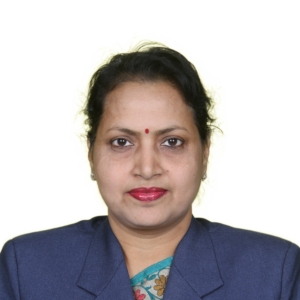
Dr. Rashmi Mohapatra
Principal Investigator
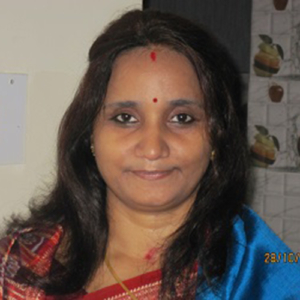
Dr. Snigdharani Panda
Co-Principal Investigator

Dr. Umesh Chandra Dash, PhD
Project Co-ordinator
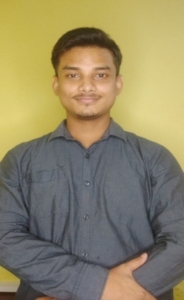
Mr. Soumya Ranjan Mohanty
Project Associate-2

Mr. Jay Prasad Jena
Project Associate-1
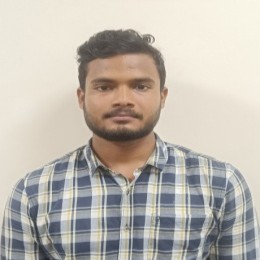
Mr. Tatwadarshree Mohapatra
Laboratory Assistant


